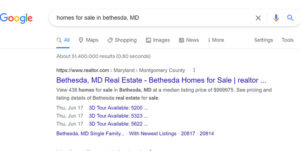The best way to drive traffic organically to a real estate website is Local SEO.
It’s like stating the obvious, but the mysticism created by the billion dollar SEO industry around SEO leads most real estate professionals to believe that ranking on page 1 of Google is complex, time consuming and difficult.
It is for this reason that they give up even before stating to implement easy local SEO strategies on their real estate website.
There is no denying the fact that real estate is a competitive industry and you will be up against big companies such as Zillow or Trulia which invest a lot of money in SEO every year. But after having worked with over 250 real estate professionals, I can undoubtedly say that ranking for your target keywords is not as difficult as you believe it to be.
Here are some easy local SEO hacks for real estate professionals including real estate agents, investors, real estate lawyers and mortgage brokers:
On-page SEO for real estate
Implementing on-page SEO for real estate might need some technical expertise. Hire an SEO expert if necessary, but make sure that your website is optimized for on-page SEO.
- If you are using WordPress, make sure that the theme files for pages and posts are using H1, H2, H3, P tags in a proper order. There should only one H1 tag for the headline on every page or post.
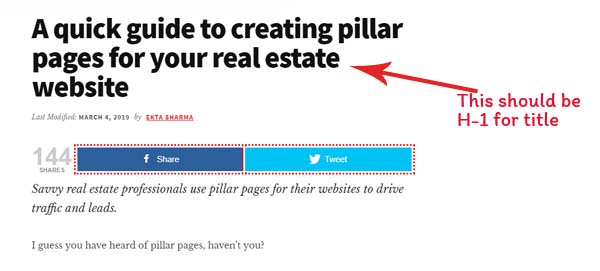
- Use Plug-ins such as Yoast SEO or All-in-one SEO to create XML sitemap for your real estate website. Submit the sitemap and test it after creating an account on Google Search Console.
- You can use the same plugins for adding title tags and meta description tags for posts and pages.
- Proper use of post meta data such as author name, modified date, first published date etc. date can boost SEO.
- Make sure that you are using a ‘Focus Keyword’ and ‘Long Tail Keywords’ in the content for every page and post. Also make sure that you don’t create two pages or posts targeting the same keyword. You should avoid keyword cannibalization as it confuses Google.
- Make sure that your blog posts are at least 1000+ words long.
- Don’t overuse keywords in the content. Limit the keyword density to less than 1 percent.
- Visual elements such as inforgraphis, YouTube videos and images boost on-page SEO. It will boost average time-on-site and reduce bounce rate. It means that the visitors will stay longer on your site, a huge ranking factor.
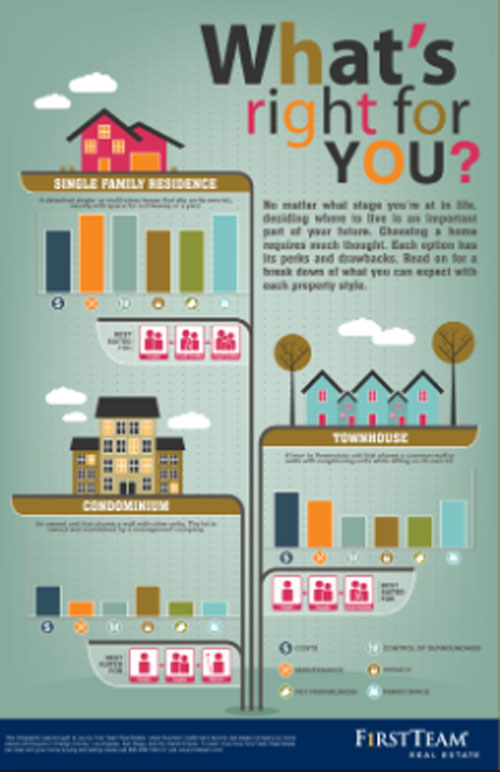
- Embed YouTube videos in your blog posts and pages.
- Internal linking is also a huge on-page SEO factor. Make sure that each page or post links to other pages on your site. Use anchor text.
- Posts should ideally have outbound links to authority websites in your niche. For example, if you are explaining real estate investment strategies in a post, you can link to relevant Investopedia articles when you mention words such as foreclosure, real estate mutual funds, REITs etc. Your visitors can click on these links and learn more if they want to know how real estate mutual funds, foreclosures or REITs work.
- A mobile friendly real estate website is a must for SEO. In fact, Google now has mobile-first indexing policy. Mobile-first indexing means Google will predominantly use the mobile version of the content for indexing and ranking. Historically, the index primarily used the desktop version of a page’s content when evaluating the relevance of a page to a user’s query. It is quite unfortunate to see that many real estate agents still have sites which aren’t optimized for different mobile screen sizes. To find out, whether or not your site is mobile-friendly, use this free Mobile-Friendly-Test tool from Google. This guide from Google is a bit technical, but a very handy if you want to check how your website looks on different devices.

- Another factor that determines your ranking in Google is the speed of your real estate website. Your website should load faster. Your hosting service plays an important role, but a lot of other factors also come into play. Use this Google tool to find out how fast your site loads. Consider having an Accelerated Mobile Pages (AMP) version of your website. AMP-enabled pages load very fast when a visitor comes to your site from Google.

- There shouldn’t be any broken links on your website. You can use free plugins to find and fix broken links easily.
- Whenever you delete a page from your website (that has been indexed by Google), make sure that you set up a redirect. There are many WordPress plugins that make it very to redirect URL of deleted pages to an existing page on your website.
- Whenever you upload an image to your site, make sure that you are adding title tag and alt tag.
- Structured data markup is an important element of on-page SEO. According to Google, the Structured Data Markup Helper helps you mark up elements on your web page so that Google can understand the data on the page. Once Google understands your page data more clearly, it can be presented more attractively and in new ways in Google Search. There are many mark-up elements specifically created for real estate agents. They include RealEstateAgent, Offer, Product, Place, RentAction, Residence, PostalAddress, SearchResultsPage, WebPage. If you use these mark-ups, certain element on your web pages will be highlighted in search engine results.
- The security of your website is also important. You should add an SSL certificate. There are many free WordPress plugins that make it possible for you to add a basic SSL certificate with a single click. A website with SLL starts with HTTPS, while a website not having SSL start with HTTP in browsers.
- There shouldn’t be any coding errors on your website. You can find out coding errors using this official tool.
- Keep the URLs for your pages and posts short and make sure that you optimize them for SEO. You can use your target keyword in the URL and remove unnecessary words and numbers.

- Make sure that your site is optimized for navigation. Anything that prevents users from navigating your site easily is an SEO red-flag. These include pop-ups and slide-ins, particularly on mobile.
- Sign up for Google Analytics and Google Search Console accounts. If Google finds any policy violations or errors, you will probably get a warning in Google Search Console. Keep a tab on what keywords are driving traffic to your site and which webpage is ranking where in search results for a particular keyword. Keep adding those keywords to optimize your content.
Off-page SEO for real estate for real estate
While you control everything when it comes to on-page SEO (because you can edit your website any way you want), some elements of off-page SEO may be out of your control. The reason is that in order to boost off-page SEO, you usually rely on third-party websites. You submit your content to these websites and need to market your content online.
Here are off-page SEO practices to help you improve Google rankings with
Help Google know your real estate business exist
This local Google SEO hack will take no longer than 30 minutes of your time, but it will significantly boost your rankings in search engine results.
List your real estate business in Google My Business and Google Maps. If you list your business properly on Google My Business, it will automatically appear on Google Maps.
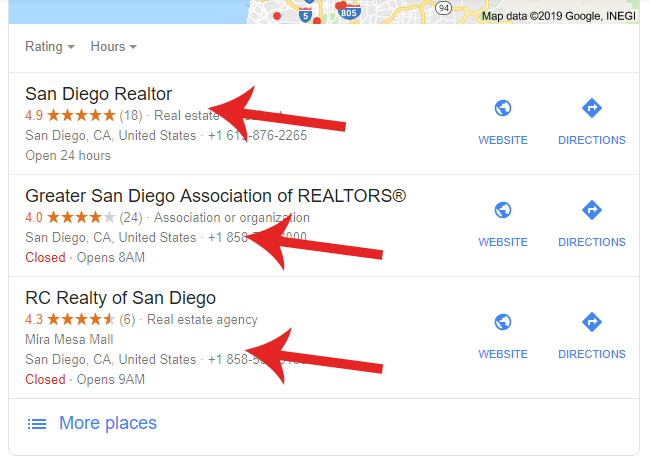
Make sure that the name of your business, address and phone numbers (NAP) and other details such as email address are consistent and exactly similar to the information you submitted to other business listing websites. Double checking all the information is important because it will be difficult for you to make changes later. Any changes on Google My Business page may take days, even weeks to reflect.
Google will send an authorization code to the physical address of your business, so double check that you have provided the correct address in your listing.
Request your clients to leave good reviews on your Google My Business listing. The reviews will help you rank higher in listing search.
Google My Business listing not only boosts local real estate SEO but also helps prospective leads find your business. They will be able to use Google Maps to drive to the physical location of your business.
Once you have claimed your listing on Google My Business, embed a Google Map on your website. This will boost the authenticity of your website in Google search.
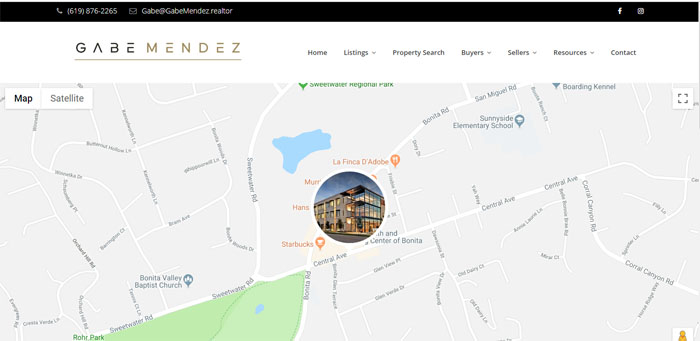
Best practices for claiming your real estate business on directories and listing sites
Claiming your business on directories and listing sites is a double-edged sword. If done correctly, it can dramatically boost your rankings in search engines and if done incorrectly, nothing else can be more damaging to SEO.
Here are some best practices for registering with business directories and listing sites:
- Make sure that the directories you are planning to list your business on are high-authority. Most real estate professionals simply do a google search for ‘free business listing directories’ and start registering their business with them mindlessly. Many of these business directories are spammy and will damage your site’s SEO. Some of the high authority business listing directories are as follow:

Yelp
Thumbtack
Yellow Pages
Kudzu
Better Business Bureau
Angie’s List
Merchant Circle
CitySearch
CitySquares
Whitepages
com
MagicYellow
Craigslist
Superpages
Judy’s Book
USdirectory.com
Here
Angie’s List
MagicYellow
USCity
Yext
The Business Journals
Fave
BrownBook
Merchant Circle
Kompass
EzLocal.com
CityVoter
Insider Pages
City-Data
SwitchBoard
Bizwiki
AllPages
JustDial
AmericanTowns
CityGrid
LocalPages
- Most of these directories will require you to upload your business logo and other details such as name, phone number, email address and mailing address. Make sure that these details are consistent on all the directories. You can upload additional images also to some of these directories such as Yelp. Before you start registering, you should have your business logo and images saved on your computer so that you don’t end up wasting time.
- Never overdo this. Don’t register with business directories all at once. Google may jump to the conclusion that you are trying to manipulate rankings. This particularly happens if you are registering your business with low authority directories.
- Most of these directories allow people to leave reviews. Respond to the reviews from time to time. Make sure that you don’t overreact after someone has left a negative review. Respond in a professional manner. The more reviews you get, the better the ranking of your business will be in local searches.
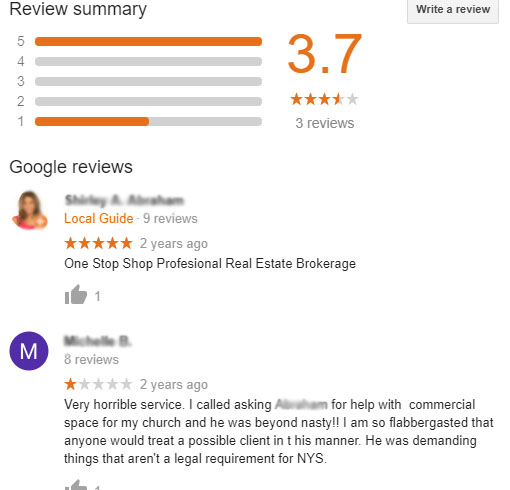
- Don’t register with only all-inclusive business directories. Make a list of most popular real estate business directories in your area and list your business there. For example, some of the websites where you can claim your real estate business in the U.S. are Zillow, Trulia, Yahoo! Homes, Realtor.com, Zoocasa and RedFin.
Submitting your business to popular directories for listing will improve your site’s ranking in search results. When your prospects will search for your business by its name, the results from these directories will also show up, boosting authenticity and trust. You will also get free high quality traffic from these directories because most of them allow business owners to publish website links.
Create unique content for real estate SEO
This is the most effective, but also the most challenging part of local SEO for real estate. You need to create useful and unique content on a regular basis. Creating content is time consuming, but it’s absolutely worth it.
Here are some best practices for creating content for your real estate website:
- Posting blogs on a regular basis boosts search engine rankings. Don’t overdo it though. I have seen that posting one blog post a week is more than enough. But this blog post should be comprehensive. Follow on-page SEO practices outlined earlier in this guide. You should add infographics, embed YouTube videos and properly use HTM tags for headlines, sub-headlines and content.
- Don’t post only informative content all the time such as ‘how to sell your home’, ‘how to buy your first home’ etc. There is already too much content on these topics. Personalize your content to stand out from the crowd. For example you can describe local neighborhoods in your own words or through pictures and videos. You can also interview local business owners or write real case studies on challenges that your clients faced and how you helped them to overcome these challenges.
- Make your content easy-to-read and navigate. Use bullet points, infographics and sub-headings to highlight the most important sections. This will not only make your content organized, but also help readers to consume it quickly. Studies show that nearly 80% of your audience is only going to skim your content.
Networking
Had I written this guide two years ago, the heading of this section would have been ‘Backlinks’. But thanks to ever evolving Google algorithm, building backlinks unnaturally now amounts to manipulating Google rankings.
It means that instead of focusing on mindlessly begging bloggers to link to your site, you should focus on content marketing and networking.

You should network with other real estate professionals, marketers and local business owners. Feature them in your content. Nine times out of them, they will return the favor and feature you in their content. The link building will happen naturally. They will also share your content (that features them) on their social media channels. More social shares and likes mean strong social signals for your content on the web.
According to BigCommerce, social signals refer to a webpage’s collective shares, likes and overall social media visibility as perceived by search engines. These activities contribute to a page’s organic search ranking and are seen as another form of citation, similar to backlinks.
Networking with other professionals in your niche not only will boost local SEO, but also can potentially help you get more leads from referral.
Social signals
I have already explained what social signals mean. They are important because they build trust and authenticity of your brand in search engine results. Each social share is counted as a vote. Whoever gets the maximum number of votes wins, right?
- Be active on social media platforms including Facebook, Twitter, Instagram, Pinterest and Snapchat. Post unique content and interact with your prospects on a regular basis. Respond to comments and reviews.
- Video marketing should be one of the most important part of your real estate online marketing campaigns. The easiest way to start with video marketing is creating a YouTube channel. You can upload videos of most popular listings, virtual tours, open houses, neighborhoods and amenities and interview your clients on camera. Share these videos on all the social media platforms. Videos have a better organic reach than link posts (links from your website).
- Interact with your prospects in real time through Facebook Live and YouTube Live. Conduct Q&A live streaming.

Millions of videos are uploaded to YouTube every day. Get yourself familiar with YouTube SEO to rank high in YouTube search and win more video recommendations from YouTube.
- Use your target keyword in the title and description of the video.
- Also use the keyword in the name of the video file. For example if your video is about how to buy a home in Texas, you should save it with a filename containing this keyword – how_buy_home_Texas.mp4.
- Similar to Google Search Console, YouTube analytics also shows all the queries that people are using to find your video. Keep editing the title, description and other meta information based on what search phrases your prospects are using. Include those search phrases in the video description to boost traffic.
- Use relevant tags with videos.
- Try to keep the word count of the video description as longs as possible. You can in fact use the video transcript for the description.
- Provide links to the relevant pages of your website in the description.
- You can include a Call-to-Action (CTA) also in the description.
Hyper local marketing
Let’s say for example you are a real estate agent offering your services in Toronto. You will probably focus on these keywords:
- Real estate agent near me
- Homes for sale in Toronto
- Sell a home Toronto
…etc etc. These are city specific keywords. But do you know you can drive more organic traffic by coming up with neighborhood-specific keywords? Most home buyers who are familiar with Toronto geography will be specific when searching for homes. They will use keywords such as ‘homes for sale in Old Toronto’, ‘Homes for sale in North York’ etc.
Create content using neighborhood-specific keywords. Most real estate agents just create neighborhood-specific listing pages. You should go above and beyond and create blog posts, videos and image-based content.
In conclusion
It is a myth that only big players can dominate search engine results in the real estate industry. Don’t let this myth stop you from trying. It is relatively easier to rank in local searches.
Make sure that:
- You have a secured site with SSL certificate (HTTPS).
- Your website is mobile responsive.
- You have implemented Schema Markup properly.
- You are producing high quality content.
- You are using relevant keywords.
- You are following the best HTML practices for titles, subtitles, images and content.
- Your site loads fast.
- You are active on social media.
- You are utilizing your network to create brand awareness online.
The idea is to put out quality content on a regular basis. Focus more on quality, rather than quantity. If you focus on quantity, you will soon start feeling overwhelmed.
An important thing to keep in mind is that SEO takes time. If your site is new, don’t expect your content to rank high for at least 6-12 months. If you follow the best real estate SEO practices and stay clear of spammy strategies for link building, your efforts will pay off. Even if your real estate content doesn’t rank on page – 1 of Google, you will at least have a website with a lot of useful content.
Some of the strategies outlined in this guide may be a bit technical. You can hire a qualified professional to implement them for you.
Let me know in comments what strategies you are using.


